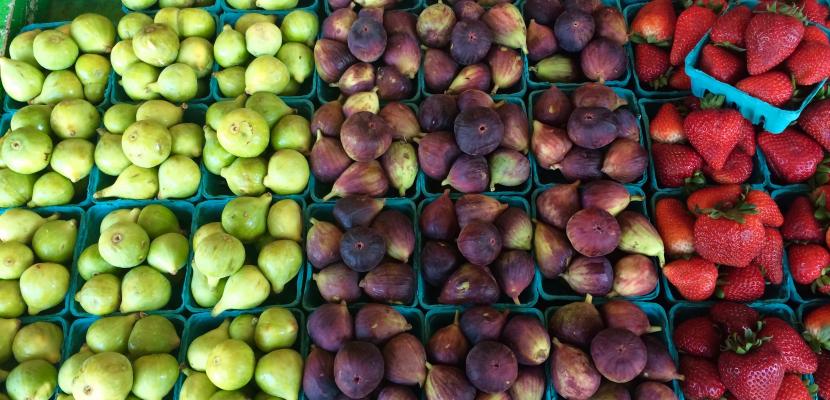Image

Guide for the olive oil and kernel oil standardization and refining companies
Published on 16 February 2021

Greece
This is the good practice's implementation level. It can be national, regional or local.
About this good practice
The guide is addressed to olive oil and kernel oil standardization and refining companies in compliance with the Joint Ministerial Decision 487/Government Gazette 1219B (4/10/2000) which adopted the Council Directive 93/43/EEC.
This guide has been prepared in the light of Directive 93/43/EEC, which encourages food business operators, including olive oil and kernel oil standarizations and refining companies, to apply hygiene rules in conjunction with a hygienic production system. products (Hazard Analysis Critical Control Points - HACCP).
The guide states the general and specific requirements regarding the application of the Hygiene Rules in the companies for standardization and refining of olive oil and kernel oil. The requirements of the legislation are listed in the dark part of the text (Requirements of the legislation, General and Special requirements), while in the light section are given clear instructions for compliance with the legislation ("Guidelines for compliance with the legislation").
The Guide describes in a comprehensive form the measures that should be implemented by the companies for standardization and refining of olive oil and kernel oil, in order to follow the specific hygiene rules. In addition, it provides information on good practice and the factors that most affect food quality and safety.
This guide has been prepared in the light of Directive 93/43/EEC, which encourages food business operators, including olive oil and kernel oil standarizations and refining companies, to apply hygiene rules in conjunction with a hygienic production system. products (Hazard Analysis Critical Control Points - HACCP).
The guide states the general and specific requirements regarding the application of the Hygiene Rules in the companies for standardization and refining of olive oil and kernel oil. The requirements of the legislation are listed in the dark part of the text (Requirements of the legislation, General and Special requirements), while in the light section are given clear instructions for compliance with the legislation ("Guidelines for compliance with the legislation").
The Guide describes in a comprehensive form the measures that should be implemented by the companies for standardization and refining of olive oil and kernel oil, in order to follow the specific hygiene rules. In addition, it provides information on good practice and the factors that most affect food quality and safety.
Expert opinion
This Greek practice belongs to a series of practices from the QUALIFY project aiming at fostering high safety, hygiene and quality standards if the food sector, in this specific case the olive and olive oil sector.
Together with further practices from the QUALIFY project, this guide contributes to implement within the food sector processes more commonly seen in the manufacturing industry.
The increase of quality and standards has the potential to bring the food industry to a higher level and fosters its growth.
We recommend in this respect to consult also the other good practice from the QUALIFY project, which can be transferred to other sectors with an appropriate adaptation of the content.
Together with further practices from the QUALIFY project, this guide contributes to implement within the food sector processes more commonly seen in the manufacturing industry.
The increase of quality and standards has the potential to bring the food industry to a higher level and fosters its growth.
We recommend in this respect to consult also the other good practice from the QUALIFY project, which can be transferred to other sectors with an appropriate adaptation of the content.
Works at
Interreg Europe Policy Learning Platform
Resources needed
Requirements for the application of the Guide are the training of the manager and staff of the business, which is necessary.
Evidence of success
Objectives of the Guide:
A) To identify the potential risks of contamination of olive/kernel oil and measures to eliminate these risks, starting with the control of raw materials and monitoring all processing and/ or work carried out in the various stages of refining, marketing "Bulk" and the standardization of olive/kernel oil.
B) To indicate the methods and criteria for the evaluation of these potential risks.
C) To propose systems for the relevant documentation
A) To identify the potential risks of contamination of olive/kernel oil and measures to eliminate these risks, starting with the control of raw materials and monitoring all processing and/ or work carried out in the various stages of refining, marketing "Bulk" and the standardization of olive/kernel oil.
B) To indicate the methods and criteria for the evaluation of these potential risks.
C) To propose systems for the relevant documentation
Potential for learning or transfer
EFET with the aim of providing quality control in terms of safety and hygiene standards in the food sector, has issued a Guide for the companies for standardization and refining of olive oil and kernel oil. The Guide provides in details all the hygiene requirements that must be applied by the companies for standardization and refining of olive oils and kernel oils, in order to ensure the suitability, hygiene and quality of the final product. The Guide identifies the potential risks of contamination of oils during their production, methods and criteria for the evaluation of these risks and proposes a system of appropriate measures to prevent these risks.
Further information
Website
Good practice owner
You can contact the good practice owner below for more detailed information.
Organisation
Hellenic Food Authority

Greece
Attiki
Contact
EU funds expert
